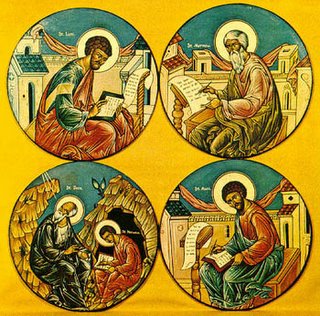
The The Da Vinci Code claims that the New Testament is a forgery and that the Gnostic gospels and the Dead Sea Scrolls are the original Christian texts.
This claim, however, is flatly contradicted by an overwhelming amount of scholarship by Christians and non-Christians. Many scholars believe that the New Testament was written during the first century and that the Gnostic texts were written no sooner than the second century. And, the Dead Sea Scrolls don't contain any gospels of any kind. In fact, the Dead Sea Scrolls do not contain any Christian writings of any kind.
There are four New Testament Gospels, which are named Matthew, Mark, Luke and John. Many scholars believe that these were written during the century in which Jesus lived. The Gnostic gospels are generally believed to have been written later – about 100 to 300 years later. These Gnostic texts borrow some elements from Christianity, including the names of Jesus and his apostles, but these writings are not Christian.
There are major differences between the New Testament Gospels and the Gnostic gospels. The New Testament Gospels contain details about life in the land of Israel during the first century. They also contain several references to Old Testament passages, prophecies and theological concepts. For Christians, the New Testament is the continuation of the Old Testament. In contrast, the Gnostic texts contain very little detail to suggest that their authors had ever been to the land of Israel, or that they were even alive during the first century. And the theological concepts of the Gnostic texts sharply contradict those that are found in the Old Testament.
Consider this from pages 26 and 27 of The Truth Behind the Da Vinci Code, by Richard Abanes:
"But were the Gnostic gospels written prior to the books of Matthew, Mark, Luke and John? Most scholars, Christian and non-Christian, would answer no. They date the Gnostic gospels (for example, those in the Nag Hammadi collection) to about A.D. 150 to 250. Although many of these texts are Coptic translation of earlier Greek texts (that are no longer extant), most scholars agree that the material itself still does not date previous to the mid 100s to the early 200s.
"In other words, the Gnostic texts were written after the books of Matthew (about 65 to 100), Mark (about 40 to 75), Luke (about 60 to 80), and John (about 90). They [the Gnostic texts] were late arrivals, which is one reason why church leaders rejected them. ... These Gnostic gospels not only disagreed with the older [New Testament] Gospels, which were already accepted by Christians, but they lacked authority since their authors were neither a) apostles of Jesus nor b) persons associated with apostles of Jesus. ... No one really knows who wrote the [Gnostic] texts."
As for Brown's claim about the Dead Sea Scrolls - these scrolls were found in 1947, not in the 1950s as Brown mistakenly claims on page 234 of The Da Vinci Code. The Dead Sea Scrolls contain copies and fragments of Old Testament books and various religious and secular writings. But they do not contain any gospels, and they do not contain any references to Jesus. In fact, many of the Dead Sea Scrolls were written centuries before the time of Jesus.
No comments:
Post a Comment